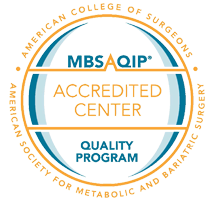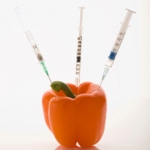 Have you ever wondered where the foods that end up on your plate actually come from? Before having received a surgical weight loss procedure such as gastric bypass surgery, this may not have been one of your top concerns, but now more than ever it’s important for you to make healthy decisions when it comes to the foods you consume on a daily basis.
Have you ever wondered where the foods that end up on your plate actually come from? Before having received a surgical weight loss procedure such as gastric bypass surgery, this may not have been one of your top concerns, but now more than ever it’s important for you to make healthy decisions when it comes to the foods you consume on a daily basis.
Salt Lake City is only one tiny spot on the globe, but did you know most foods you eat are traveling at least 1000 miles before ending up on your dinner plate?
Here are some alarming statistics concerning food travel and production in the United States:
- Many consumers aren’t aware of how much traveling and energy consumption food processing in the United Sates entails. Ten percent of all fossil fuel energy consumption in America is due to our transporting, storing, preparing and processing of foods—and this is just one alarming fact concerning food processing in the states.
- Most of the processed foods we eat on a daily basis have traveled more than an average of 1,300 miles before reaching us. At the very least, this means foods reaching consumers in Utah have traveled more than half way across the country before ending up in our mouths. Produce travels even farther, an average of 1,500 miles before reaching intended consumers.
- Many foods are picked while still unripe, so in order to ripen those foods manufacturers will use gasses for ripening during transport so they can make it long distances.
- If it’s not gas, it’s something else—many factories use preservatives and irradiation among other strange ways to make sure your produce keeps during transport.
- Right now, scientists are even experimenting with genetic modification to produce less perishable food products that last longer—pretty disturbing.
Scary statistics aside, maybe it is time to start making a conscious effort to eat more foods that are grown locally.
There are several options for you to choose from when considering switching to locally grown foods:
- Try and save some fossil fuels and plant your own small garden for produce you’d otherwise buy at the grocery store. Not only can having your own produce garden save you money, you can cut down on your intake of unhealthy, processed foods that are easy to purchase at local stores.
- If you don’t have time to plant your own garden, try visiting a local farmer’s market to buy products that are locally grown. Farmers markets are an easy way to purchase fresh produce grown on local farms.
- Creating a shared neighborhood garden is another way to obtain locally grown foods. This way the responsibility is split between neighborhood families so the garden can always be taken care of.
Eating locally is a big commitment but the payoff could be beneficial when it comes to your health. Maintaining a healthy lifestyle is important for keeping the weight off after bariatric surgery. Try some of these tips to help cut down on your consumption of America’s experimental food products, but remember to consult your weight loss surgeon before adding any new foods to your diet.


